Profesionales urbanos se sobreponen a la violencia con un proyecto agrícola basado en la comunidad y la solidaridad
Texto: Témoris Grecko.
Fotografía: Manuel Ortiz
Saida, Líbano. 26 de noviembre de 2024.
Nabatiyeh es un pueblo de gatos y perros. Hasta septiembre, en este Líbano que no hace un censo desde 1932, se calculaba que tenía unos 80 mil habitantes. Pero casi todos se han marchado, a fuerzas de órdenes de evacuación emitidas por el gobierno no de este país, sino de otro, Israel, que hace convincentes a fuerza de bombardeos. Casi uno de cada cuatro libaneses ha tenido que abandonar su hogar. En las regiones súbitamente solitarias, como en un cuento, las mascotas son hoy las soberanas del territorio.
Es el sur de Líbano, el que Israel pretende despoblar para convertirlo en un colchón de seguridad. Según algunos de sus dirigentes. Otros abiertamente se han entusiasmado con la idea de que casi todo Medio Oriente, del río Nilo al Éufrates, les fue prometido por dios y después de anexarse Cisjordania y hacer la limpieza étnica de Gaza, quieren seguirse con este pequeño país.
En ruta hacia la costa, la carretera está flanqueada por edificios destruidos en las últimas semanas. Casi no hay vehículos porque, ya que han agotado todos los objetivos que habían definido, los drones se prodigan en hacer estallar lo que se mueva. Aunque el único grupo de personas que vemos trata de apagar el fuego de un carro que parece haber sido atacado mientras se encontraba estacionado. Se habla de un cese al fuego inminente pero mientras se aplica, la violencia sigue. La explosión derribó también un poste: de pronto a nuestro coche en su avance se le atraviesa un grueso cable de luz. Pero no lo reventamos porque, por suerte, antes que nosotros se enredó con él una ambulancia que dejó la línea a la altura de nuestro parabrisas, por lo que resbala hacia el techo y queda atrás.
The people hit in this clip are relatives of the Palestinian family from Tyre currently staying with me. Killed by drone while fishing in the morning on the Levant’s most beautiful beach as was their habit. Terror in Tyre, terror in Beirut. https://t.co/XvMs3BvKJs
— Sylvain Perdigon (@sylvain_anthro) November 23, 2024
De salida, nuestro colega libanés Mahmoud recibe la noticia de que unos pescadores de la ciudad de Tiro que él conocía, porque solían venderles su captura a los periodistas visitantes, acaban de ser asesinados por un dron israelí, en la playa, sin motivo.
A solo quince minutos en auto, está Saida, la ciudad marinera que en la historia antigua era fenicia y se llamaba Sidón. En una pequeña calle, encontramos una casa que ha sido convertida en centro comunitario por la organización Sikka.
Es un lugar feliz. La conversación, inevitablemente, toca la ofensiva contra Líbano, la limpieza étnica en Gaza, el genocidio. Pero esta gente ofrece un bello ejemplo de la resiliencia característica de este pueblo, que ha sufrido una catarata de conflictos pero sigue adelante, empeñado en encontrar salidas que le permitan crear Nación, consolidar su Estado y asegurarse paz y desarrollo.
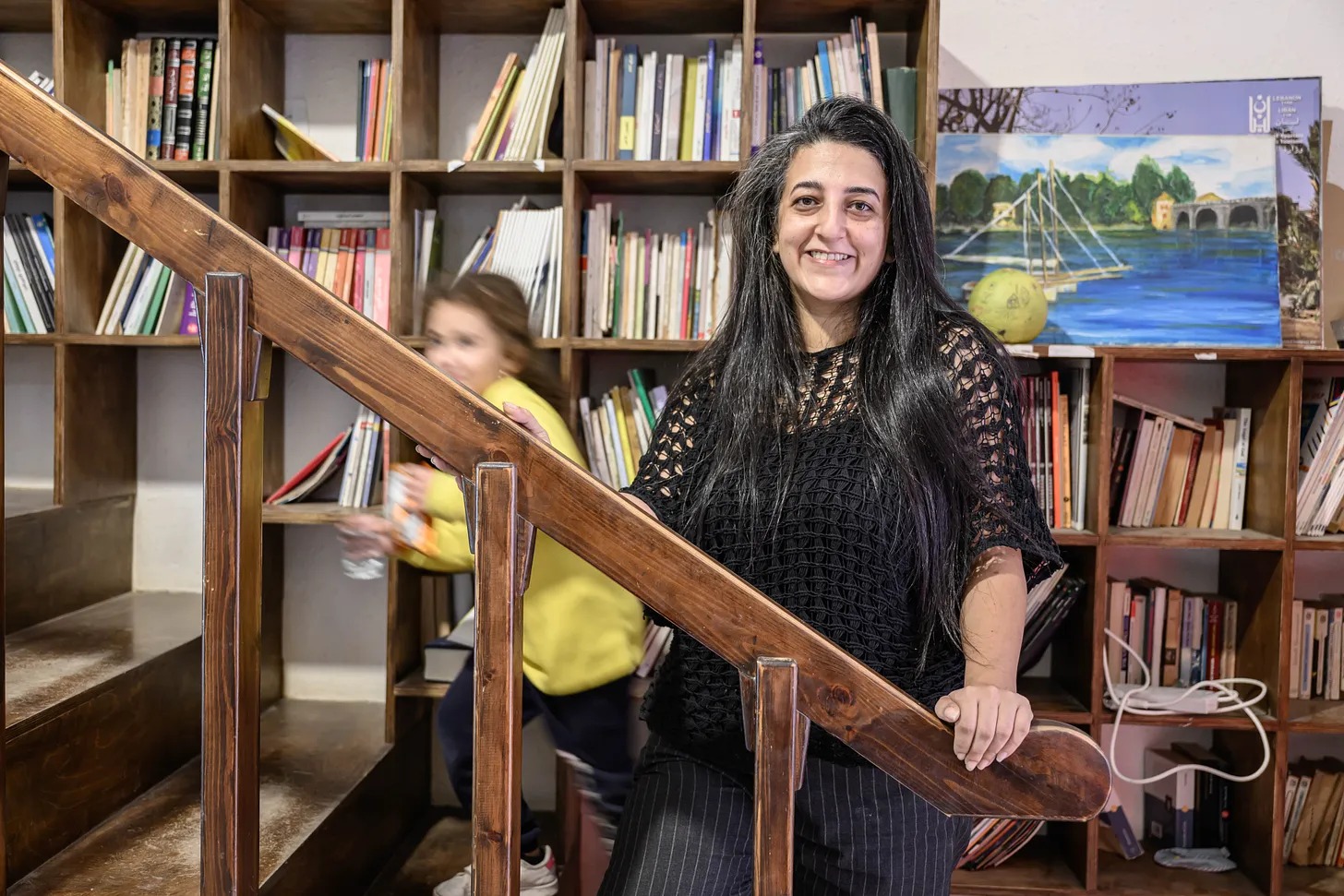
La fundadora es Layal Khatib, una desarrolladora de páginas web, con su esposo, Mohammed Ghamloush, y su cuñado, Ahmad. En cinco años, se han ido sumando colaboradores, como Tarek Abadi, un estudiante de administración de empresas, descendiente de palestinos que fueron expulsados por las milicias israelíes de la ciudad de Haifa en 1948, y que se ha especializado en la cría de pollos. O como Riham Sees, quien sigue la licenciatura en leyes pero aquí, con Ahmad, disfruta cuidando abejas.
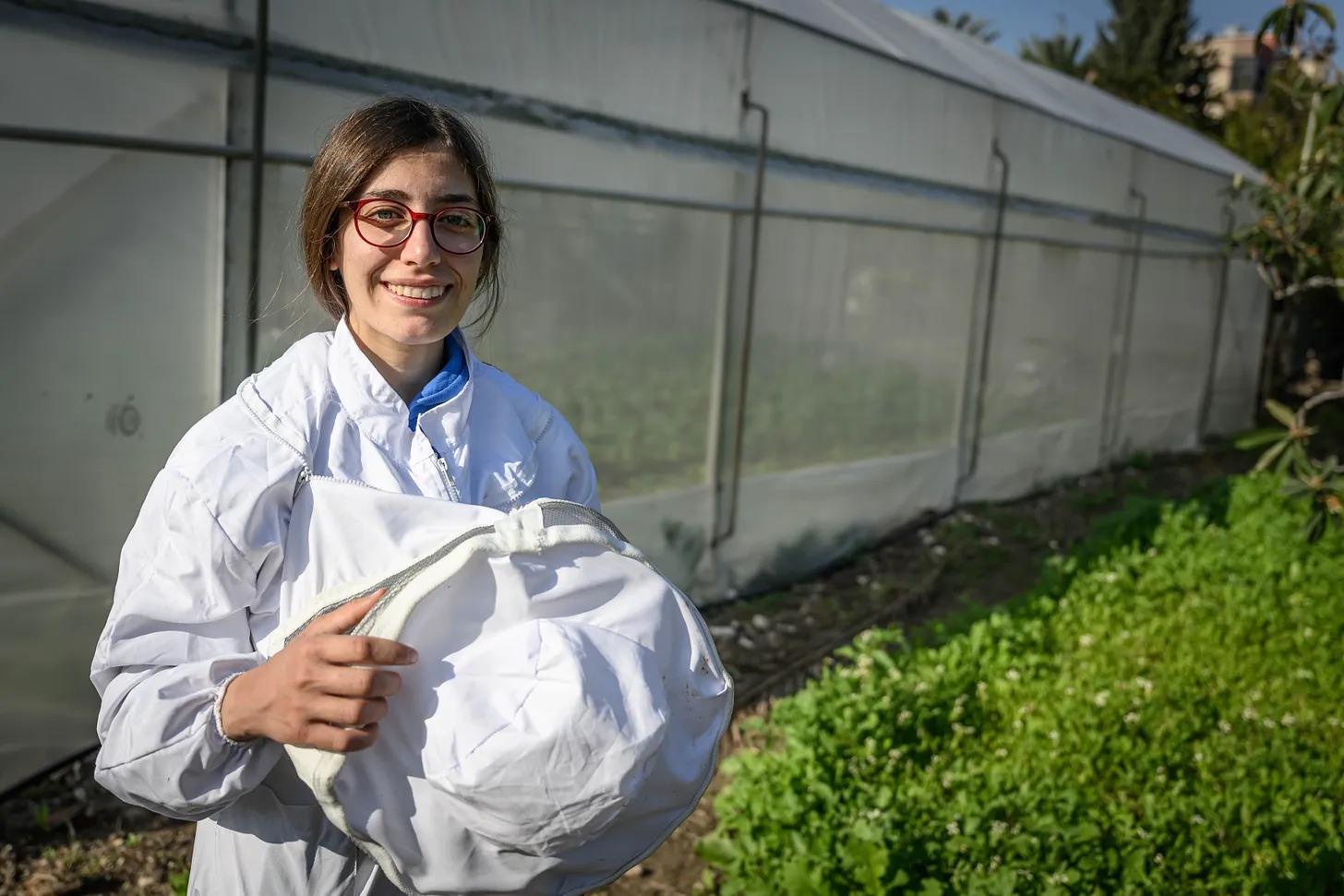
Contar estas historias es importante cuando todo lo que se dice de un lugar es terrible, enfocado en la espectacularidad de las grandes explosiones y el elogio de las tecnológicamente avanzadas capacidades de matar y aterrorizar. Las luchas individuales y colectivas de las personas que no se dejan aplastar tienen que recibir atención, porque nos dan ejemplo y nos motivan. Las narrativas de peleas sin fin ni solución desmovilizan. Las de resistencia, inspiran.
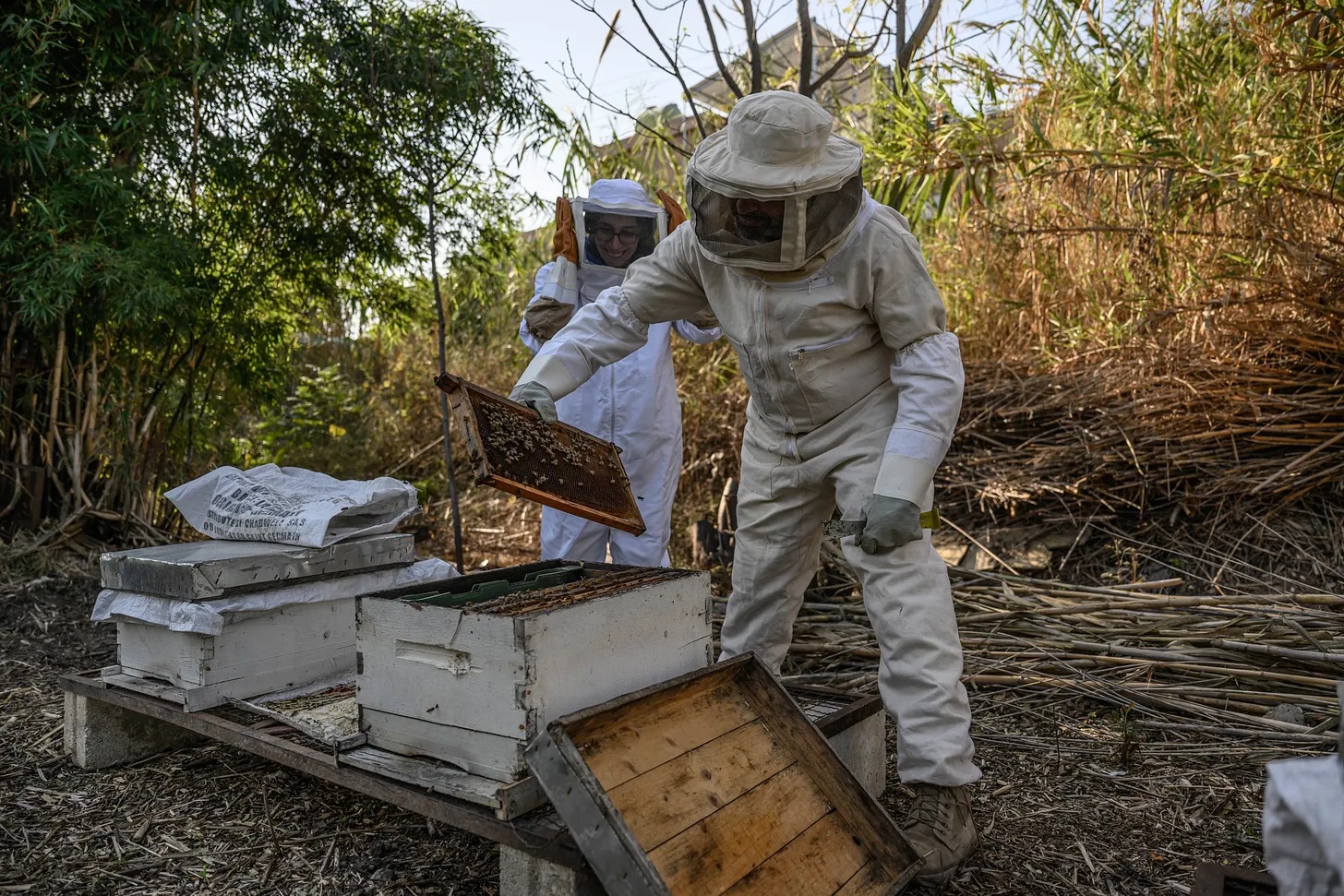
Sikka tiene un terreno de tres dunam (tres mil metros cuadrados) que estos profesionales urbanos, que han aprendido técnicas agrícolas aquí y allá, seccionaron en miniparcelas en las que cultivan de todo: limones, acelgas, habas, granadas, cilantro, perejil, zaatar, repollo… hasta amaranto.
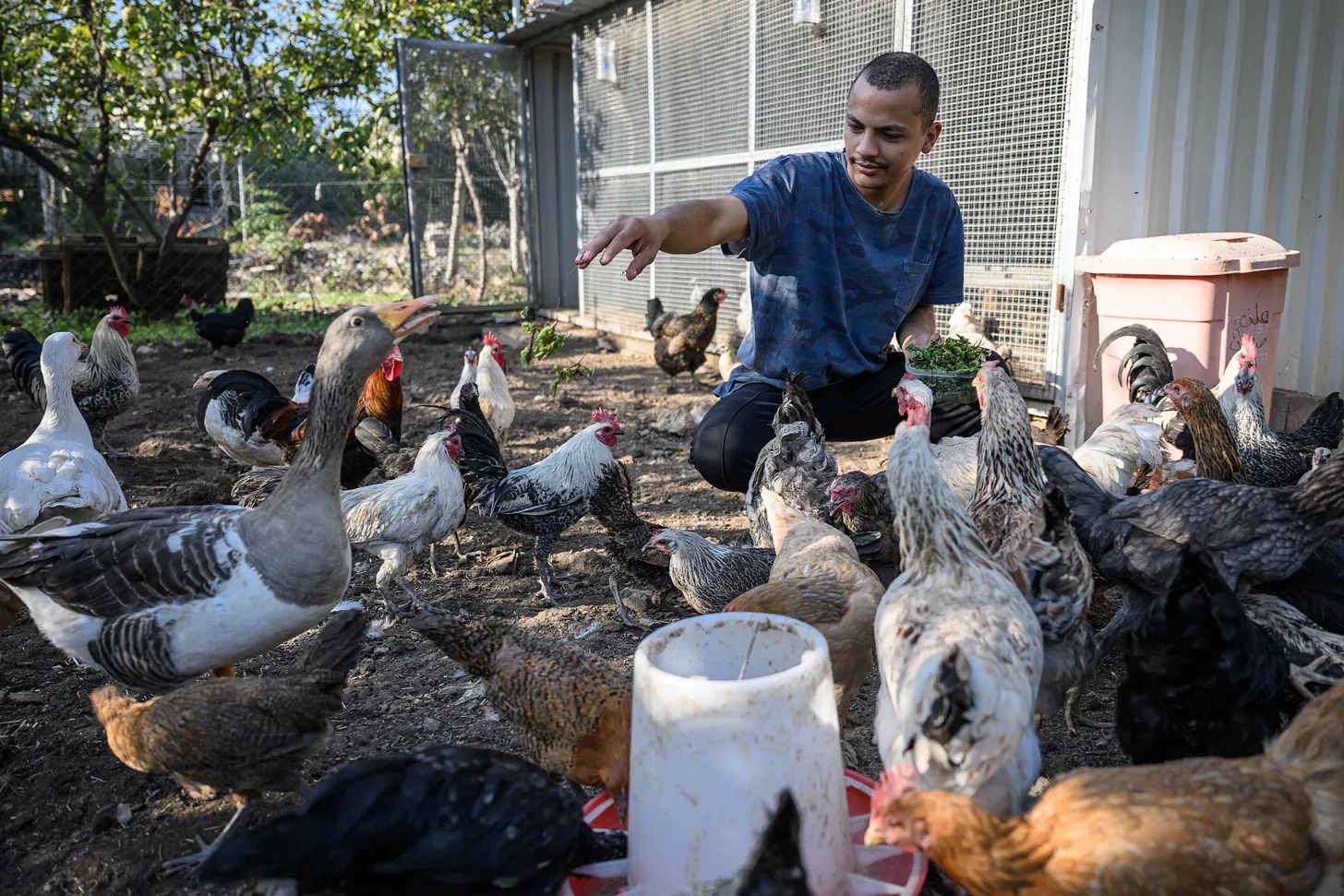
Más allá del impacto que la guerra tiene sobre cada uno, el proyecto se ha visto afectado por la falta de insumos que solían conseguir en el sur, a media hora de camino, en las aldeas hoy convertidas en fantasmas.
Pero para ellos, subrayan Layal y Mohammad, es muy importante avanzar hacia una economía circular, con lo que quieren decir autosuficiente: que su granja produzca todo lo que necesita.
Tarek ha avanzado en eso: con el estiércol de sus gallinas (más tres gansos y un guajolote), en una pileta cultiva algas que sirven para fertilizar el suelo y también para alimentar a sus aves.
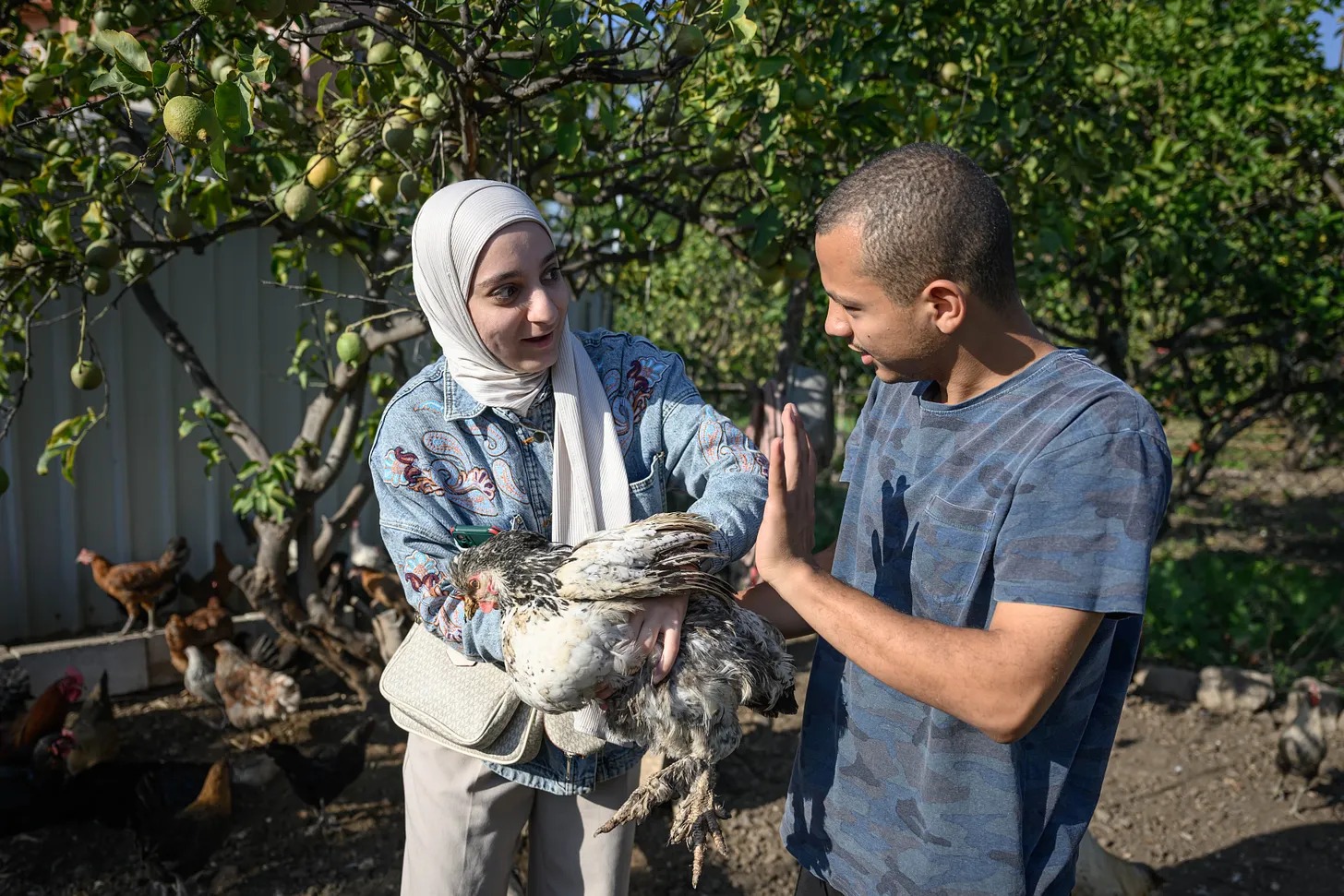
Más aún: Sikka tiene una fuerte vocación de servicio social, de solidaridad. Ha abierto algunos de sus espacios para acoger a personas que tuvieron que escapar de la violencia en el sur, y también prepara regularmente comidas que alimentan a decenas de desplazados que se albergan en otras partes de Saida.
De regreso a Beirut, a pesar del doloroso recorrido por las zonas que despobló la invasión israelí, nos sentíamos contentos y emocionados: no es que dudáramos que en los conflictos siempre hay gente que busca cómo salir adelante de la mejor manera, en comunidad y con generosidad.
Pero verlo y constatarlo (y en este caso, olerlo y saberlo, porque Tarek no dejó de darnos vegetales de los que cultivan para que los probáramos -todos sin sustancias artificiales, enfatizó-) no deja de ser alimento para el espíritu, para la esperanza.
Contra todo lo que muestra la televisión, podemos sentir -y llevar hasta los ojos de quienes nos siguen y apoyan- estos tejidos básicos de lo humano, los que nos han permitido sobrevivir… y que deberían enseñarnos a existir sin destruir. Sin destruirnos.
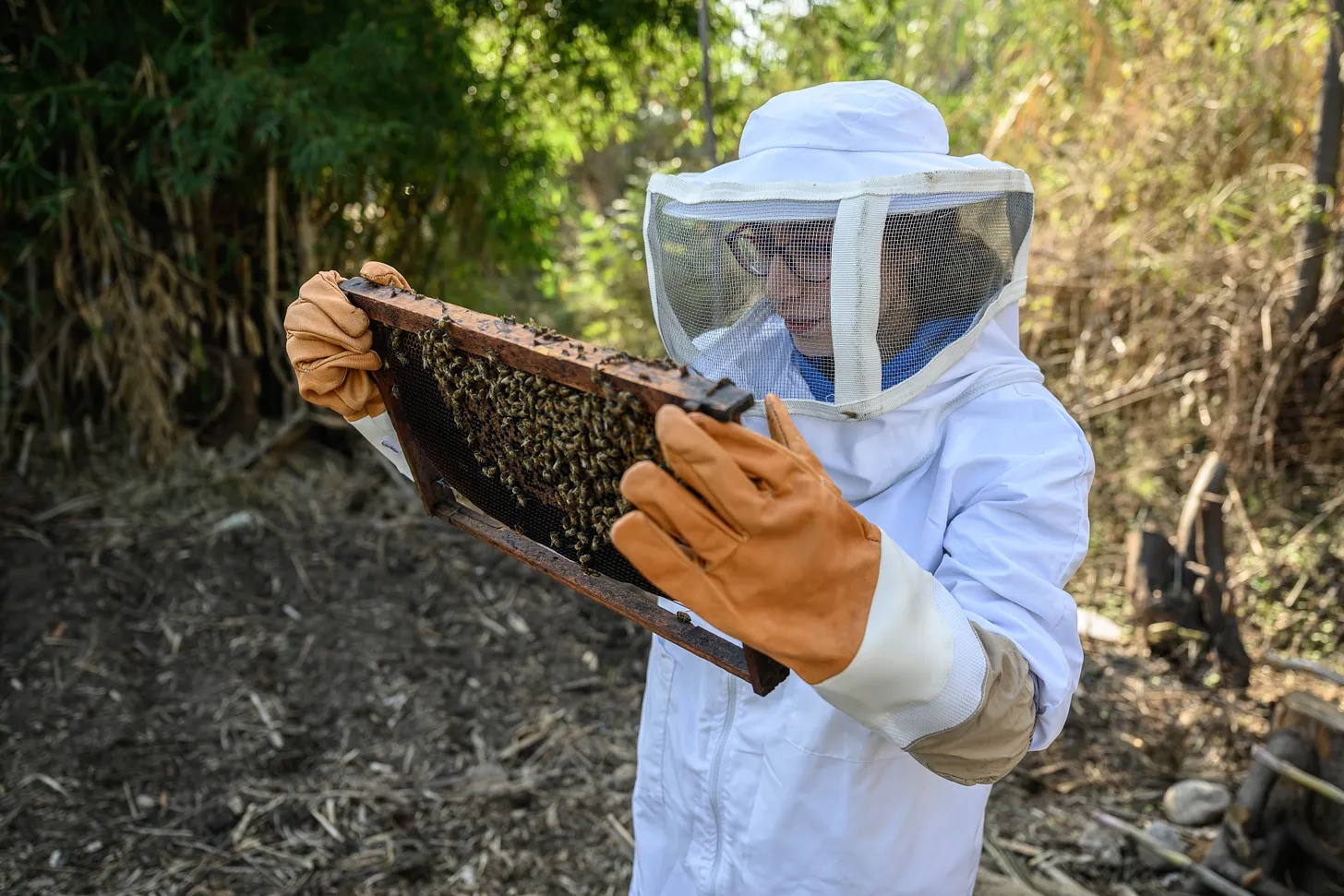
Pueden conocer más sobre Sikka en su página web, Instagram y Facebook.
Una colaboración de Mundo Abierto con Península 360 y Social Focus.
Te puede interesar: Bombardeos no paran: Periodistas mexicanos en Líbano

